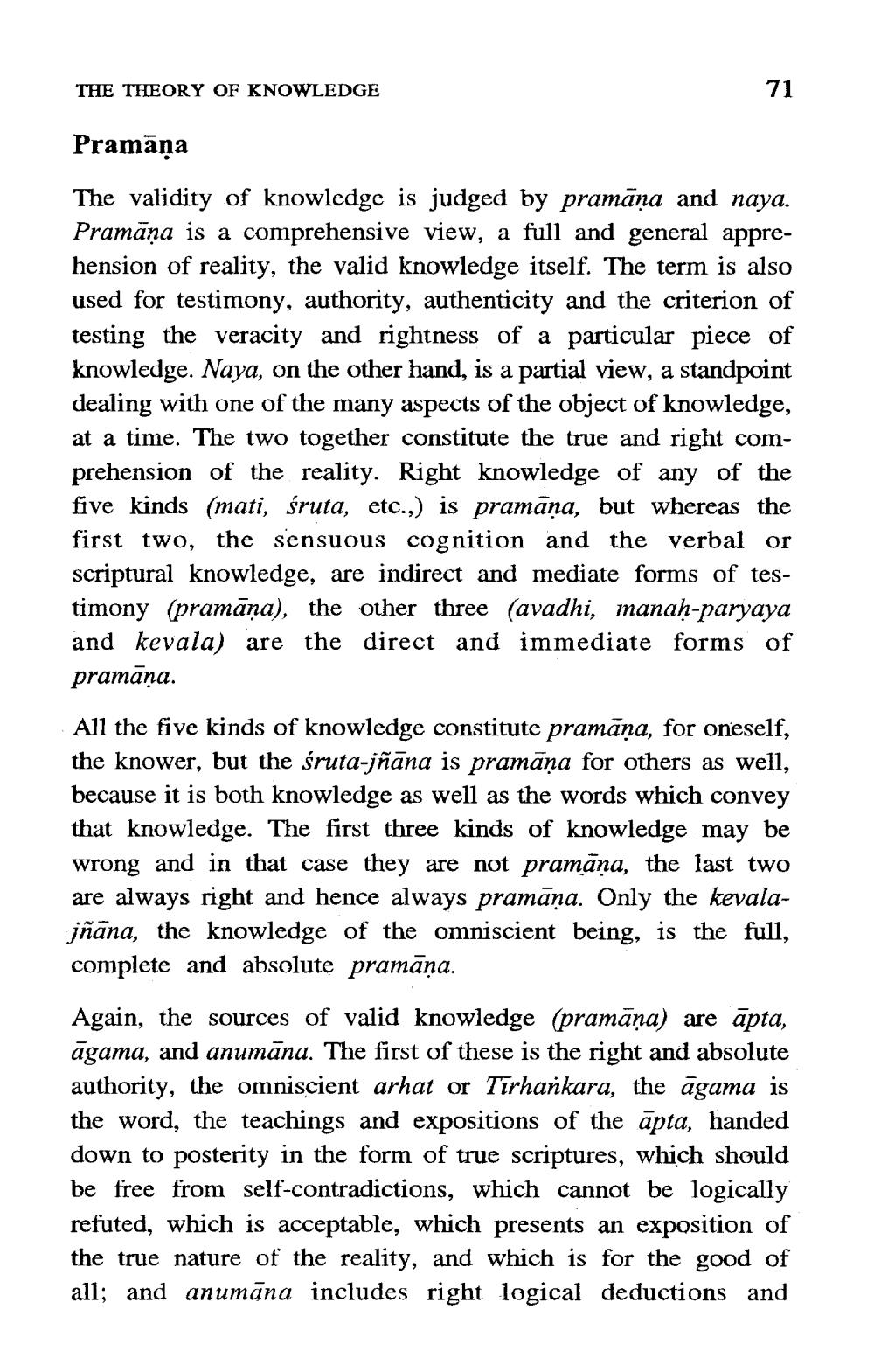________________
THE THEORY OF KNOWLEDGE
71
Pramāņa The validity of knowledge is judged by pramāṇa and naya. Pramāna is a comprehensive view, a full and general apprehension of reality, the valid knowledge itself. The term is also used for testimony, authority, authenticity and the criterion of testing the veracity and rightness of a particular piece of knowledge. Naya, on the other hand, is a partial view, a standpoint dealing with one of the many aspects of the object of knowledge, at a time. The two together constitute the true and right comprehension of the reality. Right knowledge of any of the five kinds (mati, śruta, etc.,) is pramāna, but whereas the first two, the sensuous cognition and the verbal or scriptural knowledge, are indirect and mediate forms of testimony (pramāņa), the other three (avadhi, manah-paryaya and kevala) are the direct and immediate forms of pramāņa. All the five kinds of knowledge constitute pramāņa, for oneself, the knower, but the śruta-jñāna is pramāņa for others as well, because it is both knowledge as well as the words which convey that knowledge. The first three kinds of knowledge may be wrong and in that case they are not pramāna, the last two are always right and hence always pramāņa. Only the kevalajñāna, the knowledge of the omniscient being, is the full, complete and absolute pramāņa.
Again, the sources of valid knowledge (pramāņa) are apta, āgama, and anumāna. The first of these is the right and absolute authority, the omniscient arhat or Tirhankara, the agama is the word, the teachings and expositions of the āpta, handed down to posterity in the form of true scriptures, which should be free from self-contradictions, which cannot be logically refuted, which is acceptable, which presents an exposition of the true nature of the reality, and which is for the good of all; and anumāna includes right logical deductions and




